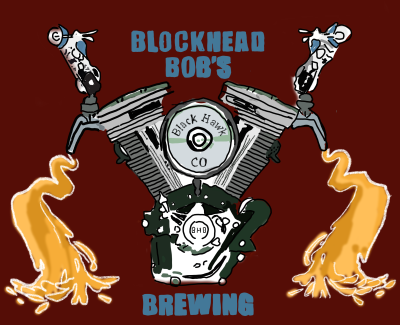Homebrew Recipe
Segelschiffmumme (First Runnings)
- Method:
- All Grain
- Style:
- Specialty: Historical Beer
- Boil Time:
- 60 min.
- Batch Size:
- 5 gal.
- Boil Size:
- 7 gal.
- Efficiency:
- 65
- Rating:
- Source:
- Brew Your Own
- Source Notes:
- November 2019, Vol. 25, No. 7 page 76. Part of "Extinct German Styles" brew special. Braunschweiger (Brunswick) Mumme. There are two versions of this ale, a super-strong one, called segelschiff-mumme (sailing ship mumme), and a very light one, called stadtmumme (city mumme). The ship mumme was an old seafarers' beer. It was transported from the brew houses of Brunswick to several ports of the Hanseatic League, including Bremen and Hamburg. From there, trading ketches would take the beer to all four corners of the world. According to many sources, mumme was a very syrupy, super-high-gravity, fairly low alcohol, highly shelf-stable brew with a huge residual sweetness. Ship mumme was in demand not only as a trading commodity, but also as a nutritious, caloric beverage that was consumed by sailors on long sea voyages. According to an Economic Encyclopedia published by Johann Georg Krunitz in 1775, ship mumme has an "excellent, sweet taste, and a deep brown, beautiful color...[and] is the best, because it keeps well on the water...without offense or ruin." The ship mumme's high original gravity was apparently the result of stopping lautering relatively early on and then boiling the wort for an extra-long time. Perhaps, surprisingly, this high-gravity sailors' tipple had a fairly low alcohol content of only 2.5-4.5% ABV in spite of an excess supply of fermentable sugars for the yeast to metabolize. Unbeknownst to the brewers of yore, the best explanation for this phenomenon might be a stuck fermentation resulting from the premature depletion of nitrogen sources, such as free amino nitrogen (FAN). In a heavy mumme wort, it is not inconceivable that the yeasts of yesteryear used up all available nitrogen during a turbulent primary fermentation, but then shut down their metabolism, leaving the finished beer with an unusually high viscosity. It seems impossible, however, to fully replicate these aspects of the brew with modern malts and modern yeasts, which just keep on working and producing more alcohol. The city mumme was much less viscous then the ship mumme. It was consumed by the good burghers of Brunswick. We can only surmise that it was made from the second, weaker runnings of the mumme mash after the separation of the heavier first runnings that were destined for the Hanseatic traders and sailors, as was done with the test brew. The schiffmumme is truly a "big" beer. It is chestnut brown, slightly turbid, with a creamy, fine, and long-lasting head of foam. The bouquet is powerful with notes of strawberry, gooseberry, and dried fruit. On the palate, the mouthfeel is velvety with the alcohol providing warming underpinnings for delicate notes of caramel and creamy sweets, both of which linger. The long-lasting, malty finish has mildly estery hints of mint and pear. Overall, this beer is rich and absolutely delicious.
- Notes:
- Set the mill gap for this heavy grain bed to approximately 1.5 mm. Mash-in for both beers at 126F at a liquor-to-grist ratio 2.6:1 by weight (1.25 qts./lb.). Rest 10 minutes. Raise temperature to 144F and rest 25 minutes. Raise temperature to 154F and rest 25 minutes. Raise temperature to 162F and rest 20 minutes. Raise temperature to 172F for the mash-out. Recirculate until clear, then sparge. Continue lautering until kettle gravity is about 1.088 then discontinue runoff to that kettle. Boil the wort for the segelschiffmumme, to achieve 30% evaporation, or when SG is about 1.128. This portion of the wort develops a reddish, sour-cherry-like sheen. Taste this high-gravity wort: it has a surprisingly pleasant, melanoidin-derived taste of bread crust, malt candy, and toffee. Pour this wort into a coolship for overnight cooling, sedimentation, and aeration. Finish the brew in the usual fashion through fermenting it.
Brew Numbers
| OG | FG | ABV | SRM | IBU |
|---|---|---|---|---|
| 1.128 | 1.037 | 12.1 | 14 | 80 |
Fermentables
| Name | Amount | % Grain Bill |
|---|---|---|
| Lager or Pilsner Malt | 14.44 lbs. | 90.14 |
| Notes: German Pilsner | ||
| CaraMunich I | 0.79 lbs. | 4.93 |
| Notes: Weyermann Caramunich I malt | ||
| Biscuit Malt | 0.79 lbs. | 4.93 |
| Notes: Melanoidin malt | ||
| Total: | 16.02 lbs. | |
Yeast
| Name | Lab | Product |
|---|---|---|
| SafAle | Fermentis | US-05 |
| Notes: Or any strong attenuating ale yeast. | ||
Mash Steps
| Step | Name | Temp | Time | Type |
|---|---|---|---|---|
| 1 | Step Mash | 126 | 10 | All Grain |
| Notes: Mash-in for both beers at 126F at a liquor-to-grist ratio 2.6:1 by weight (1.25 qts./lb.). Rest 10 minutes. | ||||
| 2 | Step Mash | 144 | 25 | All Grain |
| 3 | Step Mash | 154 | 25 | All Grain |
| 4 | Step Mash | 162 | 20 | All Grain |
| 5 | Mash-Out | 172 | 10 | All Grain |
